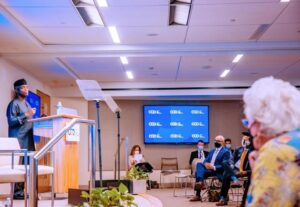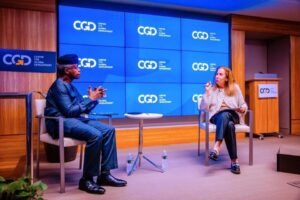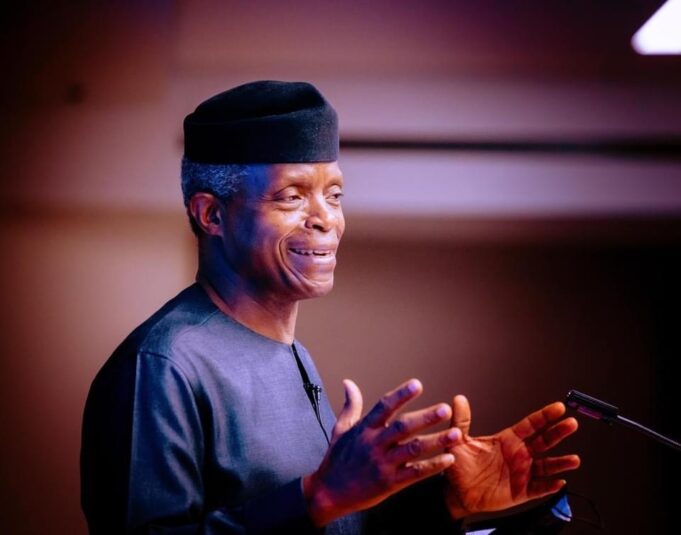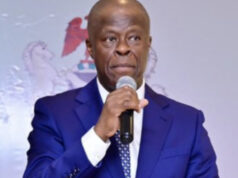Vice President Yemi Osinbajo has called for a debt-for-climate swap deal to achieve a just and equitable energy transition for Nigeria and other African countries.
According to a statement issued on Friday by Osinbajo’s spokesman, Laolu Akande, the Vice President made the call on Thursday at a lecture on a just and equitable energy transition for Africa at the Centre for Global Development in Washington D.C, United States.
Osinbajo said the swap deal would significantly advance the course of global net-zero emissions targets and facilitate energy access and the development of African countries if it scaled through.
Debt for climate swap is a type of debt swap where bilateral or multilateral debt is forgiven by creditors in exchange for a commitment by the debtor to use the outstanding debt service payments for national climate action programs.

Typically, the creditor country or institution agrees to forgive part of a debt, if the debtor country would pay the avoided debt service payment in a local currency into an escrow or any other transparent fund and the funds must then be used for agreed climate projects in the debtor country.”
Osinbajo stated that the debt for climate swap deal is a win-win for both the global North and African countries, adding that the commitment to it would “increase the fiscal space for climate-related investments and reduce the debt burden for participating developing countries.
READ ALSO: Osinbajo to Govs: We need to act fast on economy, ASUU strike
“For the creditor, the swap can be made to count as a component of their Nationally Determined Contributions,” he said.
The Vice President added that to make this efficient “there are of course significant policy actions necessary to make this acceptable and sustainable.”
He also proposed the greater participation of African countries in the Global Carbon Market while exploring financing options for energy transition.
Osinbajo noted that there was a need to take a comprehensive approach in working jointly towards common goals, including the market and environmental opportunities presented by the financing of clean energy assets in growing energy markets.

“In addition to conventional capital flows both from public and private sources, it is also essential that Africa can participate more fully in the global carbon finance market.
“Currently, direct carbon pricing systems through carbon taxes have largely been concentrated in high and middle-income countries. However, carbon markets can play a significant role in catalysing sustainable energy deployment by directing private capital into climate action, improving global energy security, providing diversified incentive structures, especially in developing countries, and providing an impetus for clean energy markets when the price economics looks less compelling – as is the case today,” he said.
Osinbajo stated that the developed countries should support “Africa to develop into a global supplier of carbon credits, ranging from bio-diversity to energy-based credits which would be a leap forward in aligning carbon pricing and related policy around achieving a just transition.”
The Vice President noted that to address the concerns of the African continent and other developing countries regarding a just transition, “the central thinking for most developing countries is that we are confronted on this issue of a just transition with two, not one, existential crises; the climate crisis and extreme poverty.

“The clear implication of this reality is that our plans and commitments to carbon neutrality must include clear plans on energy access if we are to confront poverty. This includes access to energy for consumptive and productive use and spanning across electricity, heating, cooking, and other end-use sectors.
“Nearly 90 million people in Asia and Africa who had previously gained access to electricity can no longer afford to pay for their basic energy needs. The inflationary pressures caused by the COVID-19 pandemic and other macroeconomic trends have been further exacerbated by the ongoing war in Ukraine.
“Countries worldwide have been hit by record prices on all forms of energy. Power prices are breaking records across the globe, especially in countries or markets where natural gas plays a key role in the energy mix,” he stated.
Osinbajo further cautioned that “in such a global reality, limiting financing of gas projects for domestic use would pose a severe challenge to the pace of economic development, delivery of electricity access and clean cooking solutions, and the scale-up and integration of renewable energy into the energy mix.
READ ALSO: EFCC Chair: I won’t submit to blackmail of private interests
“African nations are now happily more intentional in taking joint ownership of our transition pathways and designing climate-sensitive strategies that address our growth objectives. This is what Nigeria has done with our Energy Transition Plan.
“Our Energy Transition Plan finds that an additional $10 billion over business as usual is required annually till 2060 to shift the entire economy to a net-zero pathway,” the Vice President said.
On the subject of energy investments, he identified the mismatch in the volume of investments experienced in developed countries as opposed to developing countries.
“While representing just 15% of the world’s population, high-income countries received 40% of global energy investment in 2018. Conversely, developing countries with 40% of the world’s population received just 15% of global energy investment. This hasn’t improved much in recent years,” Osinbajo noted.
- Tinubu: APC correcting PDP’s mess in 16 years’ regime - September 5, 2022
- Oil marketers embark on strike in northern states over N70bn claims - September 5, 2022
- FG files fresh charges against Abba Kyari, Ubua, seizes properties - September 5, 2022










